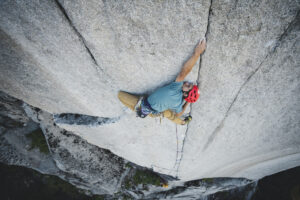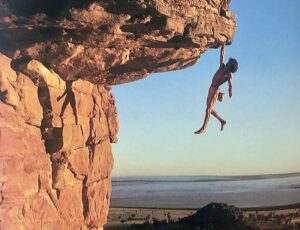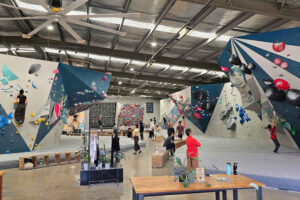Following a confrontation six weeks ago, women have now been banned from outdoor climbing in Dorche, Iran.
A climber (who asked to remain anonymous) told Climbing that the local mountain in Isfahan, Kooh Sefid, has over 40 sport routes that have been used freely by both men and women until now. The incident occurred on the mountain during a canyoning class that was attended by both men and women in central Iran. Local Islamic fundamental extremists interrupted the group. When the group objected to the intrusion, they were beaten.
IranWire reported that the Isfahan Mountaineering Board condemned the attack and offered legal assistance to the victims. However, following that, the Imam of the grand mosque in Dorche supported the attacker.
The unnamed climber continued to tell Climbing that the Imam said the men and women in the group were doing “dirty works” by traveling to the mountain together, and threatened Isfahan’s sport authorities “not to mess with Islamic culture”. He claimed that in this instance, the women were the “intruders”.

Women in Iran typically wear a hijab while climbing outdoors.
Mehdi Nasr Esfahani, head of the Isfahan Mountaineering Board, responded by banning women from outdoor climbing in Dorche until the conflict is resolved. He has asked to meet with the Imam and other authority figures in the region to discuss building a new route to the climbing site. This would solely be for women to allow them to continue climbing.
Dorche has a population of around 50,000; the majority have strict religious beliefs. The climbing site is close to a pilgrimage site, so many are particularly sensitive about the area.
It is not the first time that climbers have endured hostility. Passersby regularly insult them and they have been asked to leave the area multiple times. The climbers have complained, but nothing has been done.

The statement from Isfahan Mountaineering Board informing that women must only train indoors. Photo: IranWire
“It is unfair and nonsense,” says a leading Iranian woman climber.
“It is strange that instead of addressing the essence of the issue, women are advised not to climb at that site and temporarily climb only in the gym,” said Farnaz Esmaeilzadeh, a leading Iranian climber. “[It] is unfair and nonsense.” She noted that even if the ban is lifted, women will continue to feel unsafe there.
She is not the only person to speak out against the ban against women. One Iranian tweeted, “Why don’t they kill girls as soon as they are born? Women in Iran are not allowed to travel abroad without their husband’s permission. Riding bicycles and climbing rocks are also banned.”
Religious restrictions on women remain common in Iran. In 2006, women were going to be allowed entry into football stadiums until two Imams spoke out against it. One said they could not guarantee women would “observe Islamic decency” in the stadiums, the other said that allowing entry to women was “the highest insult to women of the Islamic society”. The plan to allow women into the stadiums was revoked.
In 2019, FIFA ensured that women could attend football matches, and over 3,500 women attended the World Cup qualifier match in Iran, but the general ban still remains in place nationally.
Climbing and mountaineering have become more popular with Iranian women, as it provides an escape from the restrictions placed on them in cities and towns. In 2003, it was ranked as Iran’s most popular women’s sport. Speaking to UK Climbing in 2016, Shirin Shabestari, an Iranian climbing instructor now based in the UK, said, “Down in the city, I was a girl being treated differently. When I went to the mountains with my Dad, I felt like an equal. The mountains suddenly offered a whole different world. A world where it was okay to let the scarf slip. To let the wind magically blow your hair around.”






